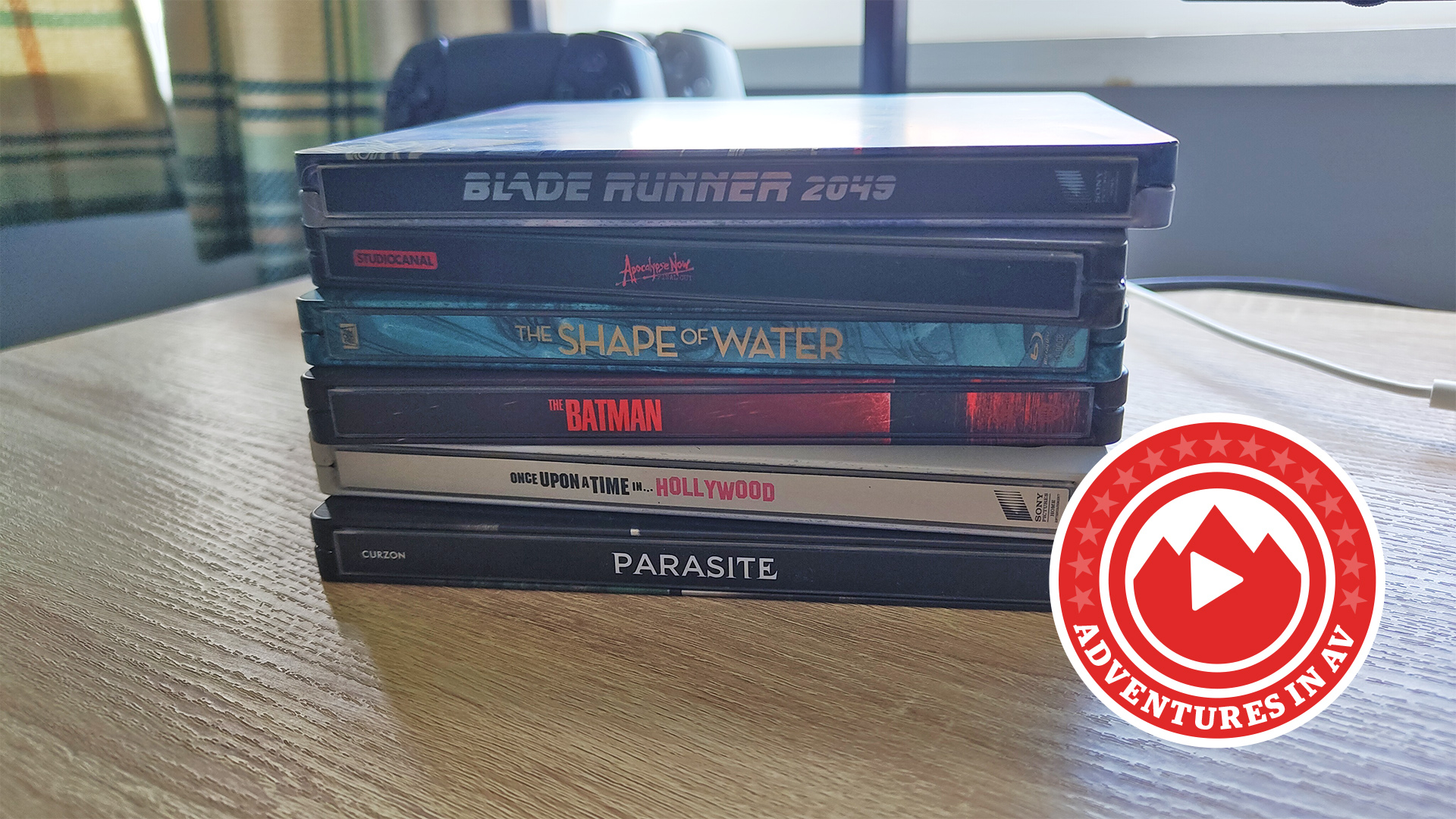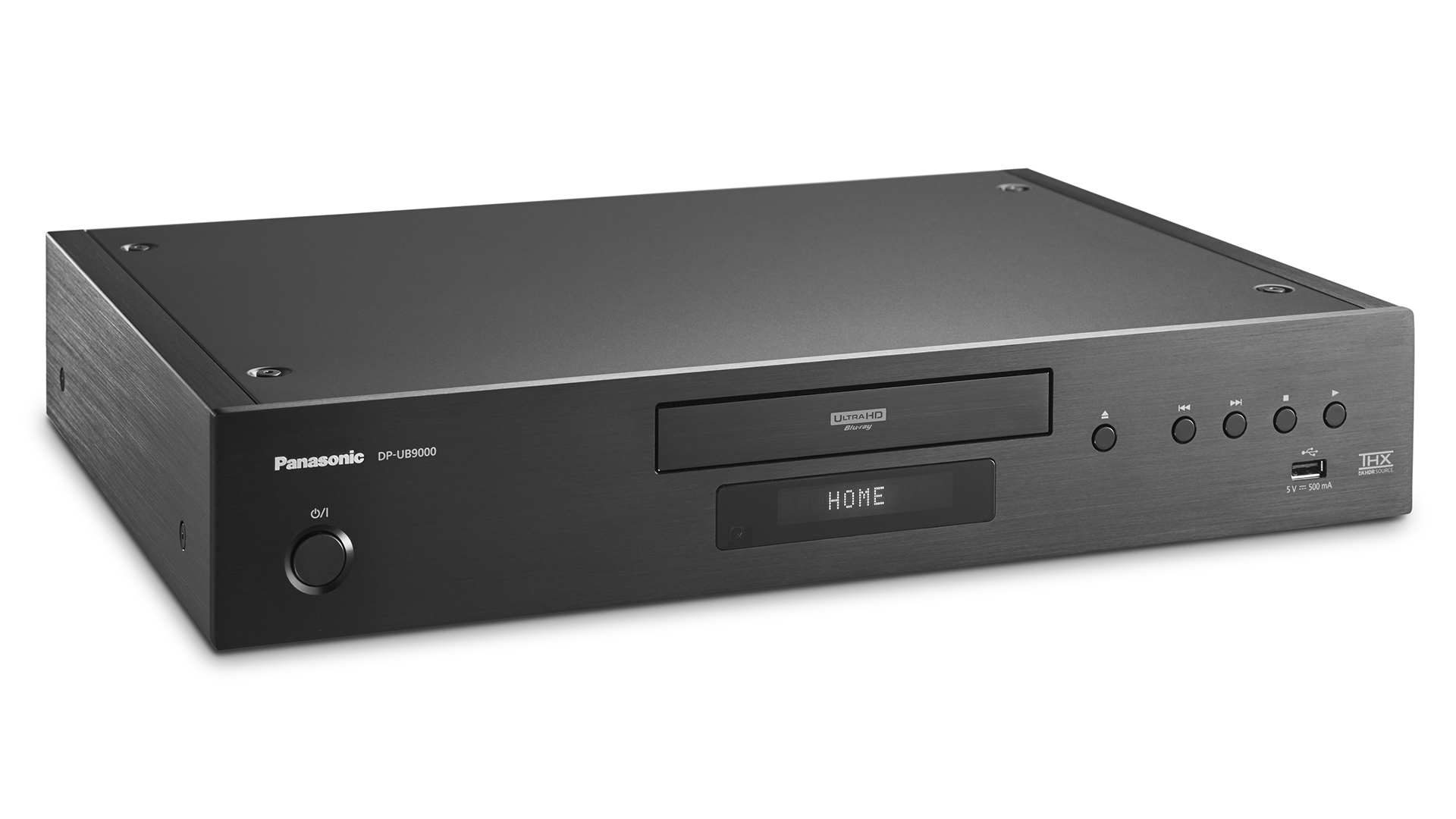
Allow me to introduce myself before we embark on the latest of our Adventures in AV. My name is Lewis, I'm a staff writer on What Hi-Fi?, and I'll be stepping in for Tom who is away on holiday this week. And I am a sucker for physical media. I know we bang on about it a lot here at What Hi-Fi?, but we do so for good reason.
The thing about streaming is that while it's convenient, cheap, and there's a wide variety of content across the varying platforms, the picture and sound performance can't quite rival that of a 4K Blu-ray. And after all, we're all about performance-per-pound value.
As with every rule, there is an exception, and that's a streaming service that's exclusive to Sony TVs called Bravia Core. Sony says that it's the only streaming service that plays at the same bitrate as a 4K Blu-ray – we want to test it further to validate that claim. And there are a few catches here, the most obvious being that you'll need a Sony TV to use this service. Bravia Core also uses a token-style system to redeem films; you get a handful when you buy a Sony product, but after that, you'll need to buy additional tokens. Finally, the content library is rather Sony PIctures heavy, which isn't a great surprise, so this service doesn't really compare to streaming rivals' libraries in terms of size and variety.
All this means that ultimately, services that advertise 4K streaming just don't look as good as 4K discs. Netflix, Prime Video, Disney Plus and Apple TV+ all stream in 4K, there's no doubting that, but it's important to recognise that not all 4K is created equally; basically, due to various factors around bandwidth and network speed, you will be seeing a lower bitrate version than you would receive on a disc.
The other issue with streaming services is that you never own the content on there. A rotating library of films and TV shows means you can log on one day to see your favourite movie suddenly not available on the service. Digital movie purchases are less risky, but still, the thought of a platform removing my video library or shutting down one day leaving my videos inaccessible gives me enough anxiety. Touch wood, this shouldn't be an issue with your disc collection.
I've consolidated these facts for quite some time, which has led to a borderline unhealthy obsession with collecting discs for the films I love. In fact, it got slightly out of control a few years ago. I attempted to curb this obsession by only buying Collector's Edition Blu-rays, complete with lovely "SteelBook" cases and special features – but that's just resulted in a very heavy collection that's become a nuisance now that I'm packing up to move house.
Would I trade it for the world? Absolutely not; my Blade Runner 2049 4K SteelBook and numbered Collector's Edition of Birdman (limited to 2000 copies) are two of my most prized possessions, and the fact that they're physical editions means no one can take them away from me (hopefully).
There is one slight issue here, and that's the fact that I am using a PS5 as a Blu-ray player which, while not the worst option out there, certainly isn't ideal for someone concerned with optimum picture and sound quality.
There are a few missing features on the PS5 that make it a less-than-stellar movie machine, such as a lack of Dolby Vision support, slightly clumsy Dolby Atmos and DTS:X integration that requires manual selection after already selecting Bitstream audio and the fact that its picture and sound performance don't rival a dedicated 4K player.
So, I thought to myself, "Why not scope out a new 4K Blu-ray player?" My browsing quickly led me to the damning reality – no one makes them any more.

Well, no one might be a bit dramatic. Panasonic seems to be working overtime to keep the market afloat, and Sony seems to be offering some backup in the form of a couple of models, but that's about it for the mainstream brands.
There are enthusiast brands, such as Magnetar, with its awesome reference 4K players that also happen to cost between £1700 and £3100 – so they will remain a pipe dream for now. Most of the manufacturers known for producing 4K Blu-ray players, such as Oppo, Pioneer, Samsung and LG, have all packed up production and stopped selling 4K players. Another sign of the streaming times?
Well, it doesn't seem entirely so. 4K Blu-ray discs have seen record sales figures as of late. This jump, reported by Media Play News, was mostly due to the success of Top Gun: Maverick, which created a surge of interest in 4K Blu-ray back in November 2022.
But whether it's new releases or 4K re-releases of classic movies, there's an abundance of new films coming to 4K Blu-ray, so where are the players that we need to, you know, play the discs?
My pre-order basket is already a cause for concern with the likes of Spider-Man: Across the Spider-Verse, Guardians of the Galaxy Volume 3, John Wick Chapter 4 and a new edition of Dune all sitting there waiting for me to check out, but truthfully I want a player that does these films justice.
Furthermore, this lack of available Blu-ray players has me worried about the future of the format. Sure, there's an abundance of 4K discs available now, but what happens if Panasonic stops producing players? Will the industry keep producing discs at the same rate if there isn't any new hardware to play them on? And will streaming platforms and digital sales ultimately offer superior quality than we can find on disc?
Dark times for physical media enthusiasts like myself could be ahead, so I'd implore you to invest in a good 4K Blu-ray player sooner rather than later.
I hope movie fans will always have physical media collections; if there's a film I see that truly resonates with me I will still go out of my way to buy a physical copy. (And I know many people feel the same way about music.) I just hope the wider home entertainment industry, right down to Blu-ray player manufacturers, continue to support the market. Not least so I can upgrade my PS5...
MORE:
Check out our picks for the best 4K Blu-ray players
As well as our list of the best TVs
And the best projectors for your home cinema







